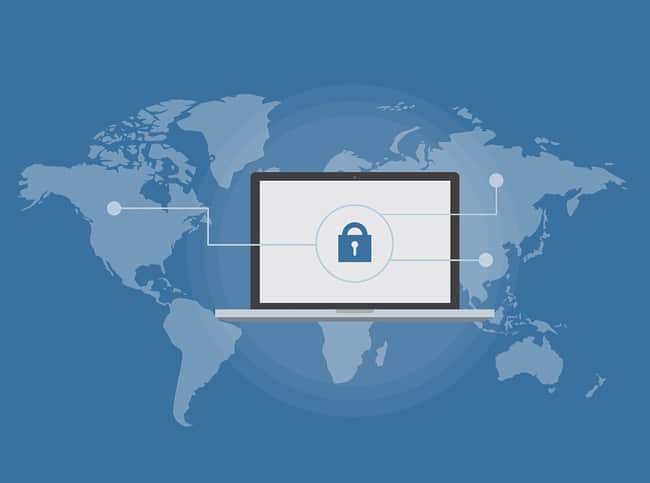Just because iPhones offer more robust security features than other devices doesn’t mean your data is 100% immune to cyber threats.
Therefore, opting for a reliable virtual private network (VPN) is a smart way to optimize security.
In this post, we’ll walk you through the perks of having a VPN on your iPhone and a simple guide to choosing a reliable one.
VPN on iPhone – An Overview
A virtual private network is a powerful digital tool/service that encrypts your online traffic and hides your IP address and location. If you’re wondering what VPN means on iPhone, the answer is quite straightforward.

Installing and using a VPN on your iPhone adds an extra layer of privacy when surfing the internet. At the same time, it routes your traffic to an encrypted tunnel, preventing online intrusion, network interference, and censorship.
Should I Use a VPN on my iPhone?
Despite Apple’s advanced security measures, there’s still a chance that your device could be compromised. A VPN offers a viable solution for individuals and businesses looking to maximize data security and integrity.
Here are the three main benefits of using a VPN.
1. Geo-Blocked Content or Application Access
The workplace has gone through a drastic evolution in the past few years. Now, millions of employees work remotely from different parts of the world. Consequently, smartphones, especially powerful ones like iPhones, allow users to access work documents, files, and applications on the go.
Moreover, many companies are now looking to outsource or offshore their operations to other parts of the world. Therefore, employees may not have access to important websites, apps, or documents, depending on their location.
Hence, using a VPN on an iPhone allows workers to access what they need and carry out their tasks effectively. Most services also allow iPhone users to bypass VoIP restrictions to make calls using Skype, WhatsApp, and other apps from any location worldwide.
2. Secure Public WiFi Access
Like most people, you probably access free or open WiFi at airports, restaurants, or malls. No matter how powerful Apple’s built-in security features are, your iPhone cannot stand up alone to the threats lurking behind public networks.
Without knowing it, you could make yourself an easy target for hackers looking to monitor and/or steal your data.
Using a VPN on your device ensures your applications and information are safe at all times, not just when accessing a private network.
3. Enhanced Bandwidth
Bandwidth throttling happens when internet service providers (ISPs) intentionally slow down your internet speed. So, if you actively download large files, stream many videos, or play data-heavy games online, your ISP can track your activity and limit your speed.
However, by masking your IP address using a VPN on your iPhone, you can ensure your ISP can’t track your activity and throttle your bandwidth.
How to Pick a Reliable VPN for Your iPhone – 3 Valuable Tips
If you’re ready to enjoy a superior class of security than Apple provides, here are three tips for picking a reliable VPN for your iPhone:
1. Look for the Best iPhone VPN Providers on the Apple Store
According to Security.org, nearly 38 million people have used VPNs actively in 2022 so far. Therefore, it’s no surprise that you can find hundreds of products in the market. However, this doesn’t mean you should pick one randomly.
Start your search by doing some basic research on the best VPN providers in the market to learn about their features, prices, and other perks.
Pro-tip: Regardless of the solution you choose, we highly recommend opting for a paid premium VPN service. As appealing as free VPNs may sound, you should steer clear of them since they offer limited functionality, display annoying ads, and collect your data.
2. Determine Your Use Case
Once you’ve done your research, the next thing you need to determine what you want to do online when using a VPN from your iPhone. Are you looking to unblock certain websites, stream videos/games, or simply secure your IP address and location?
If you’re looking to maximize privacy, you should opt for VPN providers that aren’t obligated to keep user records.
These providers are typically based in countries that are members of the five, nine, or fourteen-eyes alliance, including France, Australia, Germany, and the United States.
3. Choose the Country Strategically
Another important aspect of picking a VPN service is the location of its servers. Therefore, when choosing one, you have to consider a few things.
For instance, if enhanced speed and bandwidth are your priority, connect to a server closest to your location.
How to Install a VPN on Your iPhone Manually
If you’re ready to reap the benefits of a VPN on your iPhone, here’s a simple guide to installation and setup:
1. Head to the App Store on your iPhone and search for the VPN app you’re looking to install. (You can also visit the VPN service’s official site and look for the iOS download option).
2. Once downloaded, the app will ask for your permission to equip your iPhone with a virtual private network.
3. After installation is complete, launch the app and create your account. You can simply log in if you already have one.
4. From there, all you have to do is choose your preferred server. Now, you’re all set to go online using a VPN.
Note: Depending on your location (restrictive countries), you may be required to configure your VPN manually and opt for a different VPN protocol type (L2TP, OpenVPN, or IKEv2)
Wrapping Up
iPhones are well-designed devices with excellent security features. However, if you want greater privacy and security, you should install a VPN on your iPhone.
As you can see, opting for a virtual private network offers many benefits, like unrestricted access to sites and content and consistent bandwidth.
Pick and install a reliable VPN using our tips and ensure all your data and online activities are safe from the prying eyes of cybercriminals.

























